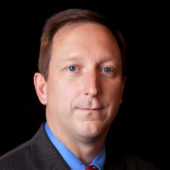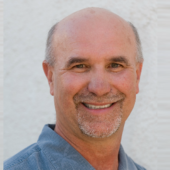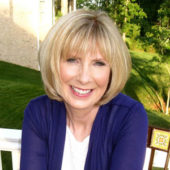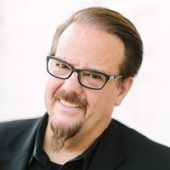“Allow me to assist you, Miss Rachel,” John Bruner placed his hands around her waist to lift her up into the wagon. Rachel was taller than most of the women of her acquaintance, a fact she could attribute to her Dutch ancestry. Yet it seemed hardly any effort for John to place her up in the seat. Being lifted by him gave her a momentary sensation of being lighter than air. As she settled on the seat, both her heart and stomach needed a moment to return to their proper places. She turned her face away from John as he climbed into the wagon beside her, trying to hide her discomposure. But she turned back and stared with some fascination as he shook out the reins and threaded them between the fingers of his big, gloved hands.
“Is your father as big as you?” Rachel asked after the wagon began rolling eastward across the unbroken Iowa prairie. Then she felt herself blush when she realized she’d blurted the question aloud.
Bruner was silent so long, she wondered if he was ignoring her impertinent question or lost in thought and hadn’t heard it.
Memories he hadn’t allowed in years flashed like lightning through his mind. His mother moaning in agony on a filthy mattress in a filthy tenement. The amber color of the liquor bottle ever clenched in his father’s fist. His father’s back as he walked away that last time. Willa’s teary eyes looking up to him as they huddled in the dark. The heady mix of fear and exhilaration of a boy sprinting away from a market with a loaf of bread tucked inside his ragged coat. The pain in his face after his first fight. The pain in his knuckles after later fights.
Looking straight ahead, he admitted quietly, “I don’t know.”
“You…What?… you don’t know?” she returned, confusion filling her voice. “John?”
After another moment, Bruner took a deep breath, exhaled it out and looked over at her. “I don’t know my father,” he said.
“But, I don’t understand. You have been telling me stories for days about your family and working with your father in his butcher shop.”
“I owe everything I am to Jacob and Eleanor Bruner, and they are my parents in every way that matters, but I wasn’t born to them.”
“I see,” Rachel murmured softly. “I am sorry.”
“No reason to be sorry,” Bruner said flatly. “My mother died of cholera when I was eight. Willa, my sister, was almost five years old, I suppose, and my father decided he couldn’t take care of us. Or just chose not to. So I did. I did whatever it took to feed my sister and me. Eventually, I got caught stealing from a market. The constable who chased me down was a kindly, god-fearing man. He took us to the St. Louis Association of Ladies for the Relief of Orphan Children.”
Rachel was silent, simply watching John and waiting for him to expound on his story.
“I think my father was a big man,” he said on a sigh. “But the memories of an eight-year-old are probably not very reliable. He isn’t worth thinking about.” Bruner slapped the reins across the horses’ rumps. The sound reverberated through crisp morning air and across grassy hills. He was silent a long time before he continued.
“Anyway, Jacob and Eleanor had been settled in Galesburg for 10 years and hadn’t had any children. So one day, Jacob decided on a trip to St. Louis. He brought Willa and me home. Adopted us when I was 11 years old.”
“So you spent 3 years in the orphanage?” Rachel placed her hand on his arm in compassion.
“Well, three years less the many months between when my father left and when I was caught as a street urchin,” John tried to smile at Rachel, but it came out more a grimace. “I was big even then and could’ve been put to work, so I could have been adopted sooner, but I wouldn’t leave Willa. I was all she had–she needed me. I couldn’t leave her. I needed her, too. But… I knew no one would take her and adopt her.” Rachel saw the tension in John’s gritted jaw and fisted hands. She was sure that if he weren’t wearing his gloves, she would be able to see white across his knuckles.
“Why wouldn’t anyone want Willa, John?” she pressed in a whisper filled with dread.
“Willa was born with a fire-mark,” he gritted out. “A birthmark. Dark red. On her face. When she was small, it covered most of her forehead and one side of her face. Its smaller now, and I swear–I don’t even notice it–I think she’s a beautiful young woman. But when we were little, people thought it meant she was cursed. Ignorant, foolish…” John sucked in his breath and tried to rein his temper. “People can be cruel, Rachel. Children, especially. Willa got picked on. I tried to protect her as best I could, but… I…” his voice broke.
“You fought for her,” Rachel finished for him and squeezed John’s upper arm. “Of course you did. And when we met, I insulted your sister, didn’t I? I fear I must apologize.”
“Yeah, that’s okay. I should probably say ‘thank you’ again for that day, too,” Bruner grinned back at Rachel. “My Mother–Eleanor–had quite the job to reform my temperament and teach me manners after I came to live with them. I was pretty resistant to ideas of school and church and God. She is a saint, though, and wouldn’t give up on me. She taught me that even in that dark alley, we were never truly alone. Now, I’d do anything for my Mother. Father, too.” Bruner stopped speaking. For a long time, they simply listened to the rhythm of the horses’ breaths and hooves and the turning wheels. “The one thing I guess I couldn’t do, was stay.”















